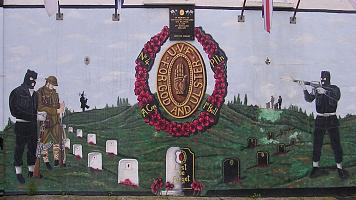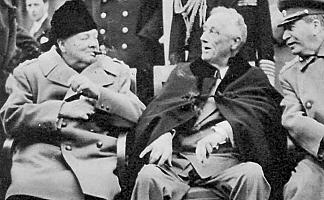BA (Hons)
History
Content navigation menu
Why study BA History at Goldsmiths
History is a relevant, dynamic, fascinating and important field of study which, at Goldsmiths, is approached in creative, innovative and exciting ways.
- We are global. You will learn about the history of the world and the global connections that span our multicultural world.
- We are relevant. You will learn about the continuing legacies of key events in history. Ideas such as democracy, liberalism, identity - how to look beyond the words on the page, delve into the emotional meaning of images and spoken word, and to dig into the truth behind the data.
- We help you explore your interests. Across the degree, you will be able to choose from a wide variety of modules including options at Birkbeck, Kings, Queen Mary, Royal Holloway, and UCL.
- We are interdisciplinary. Explore connections between history and other disciplines and learn about issues of identity and environment. You can also choose an interdisciplinary module option from other disciplines such as anthropology, politics, media studies, and sociology.
- We are research-led. You will learn how to think critically by being introduced to cutting-edge research in fields like non-traditional military history, Black British history, and Queer history. You will be introduced to innovative historical methods from oral and public history.
- We help you achieve academic success. Meet your personal tutor during induction and every term to help you set goals and improve your skills. You will participate in diverse assessments, so you can apply your learning to practice, and learn with the support of peers in small group seminars, field trips, and film screenings.
- We develop you to succeed in your future career. You will gain career knowledge and experience, including through our work placement module, which will help you stand out to future employers.
- We open doors. Whether you see your future in law, business, teaching or further study, this degree will help you get there. If you are not sure what your future holds, studying History can help you find your path. Take your first step, by choosing BA History at Goldsmiths.
Goldsmiths has a rich heritage of social awareness, civic engagement, creative arts, digital innovation, and equality, diversity, and inclusion. As a Goldsmiths graduate, you will be among the most critically engaged, interdisciplinary educated, and socially aware graduates of the University of London.
Contact the department
If you have specific questions about the degree, contact Dr Erica Wald.
UCAS code
V101
Entry requirements
A-level: BBB
BTEC: DDM
IB: 33 points overall with three HL subjects at 655
Length
3 years full-time or 4-6 years part-time
Fees
Home - full-time: £9250
Home - part-time: £4625
International - full-time: £19640
Department
What you'll study
In your first year, you'll take the following compulsory modules:
| Module title | Credits |
|---|---|
| Global Connections | 30 credits |
| Historical Controversies | 15 credits |
| Reading and Writing History | 15 Credits |
| Identity, Agency & Environment 1 | 15 credits |
| Identity, Agency & Environment 2 | 15 credits |
You'll also be able to choose two optional modules from across the Department of History from a list that is published annually. Examples of these modules can be seen in the full list of Year 1 option modules.
Note about optional modules (if available): The above is indicative of the typical modules offered, but is not intended to be construed or relied on as a definitive list of what might be available in any given year. The module content and availability is subject to change.
Teaching style
The programme is cumulative and progressive, with knowledge and skills building on previous years and growing year on year. Basic skills and competencies are delivered in the first year, which sets the broad agenda for the programme as a whole. In the second year, the modules contain increasingly challenging and demanding material which provides the foundations for the significant independent scholarly work required and undertaken in the final year.
How you'll be assessed
A wide and innovative variety of methods are used to assess learning. These include essays, reviews, source analyses, blogs, videos, walks, presentations, exams, and dissertations. Some modules are assessed by portfolios of coursework, or by a combination of coursework and an examination. Others are assessed by long essays or dissertations on topics approved with the tutor. Assessments vary in length according to the type of assessment and/or level of module.
What our students say


How our students rate us
Many aspects of our BA History set it apart from other history degrees.
In the 2023 National Student Survey (NSS):
- 96% of students said that staff are good at explaining things.
- 92% of students agreed that the course is intellectually stimulating
- 96% of students said the course challenges students to achieve their best work.
- On 'Teaching' we are ranked joint 10th in the UK.
Goldsmiths Department of History has been rated top 20 in the UK for quality of teaching in the Guardian University League Table 2023.
Entry requirements
We accept the following qualifications:
A-level: BBB
BTEC: DDM
International Baccalaureate: 33 points overall with three HL subjects at 655
Access: Pass with 45 Level 3 credits including 30 Distinctions and a number of merits/passes in subject-specific modules
Scottish qualifications: BBBBC (Higher) or BBC (Advanced Higher)
European Baccalaureate: 75%
Irish Leaving Certificate: H2 H2 H2 H2
If you can't find your qualification here, then please visit our entry requirements page for a list of alternative qualifications.
Additional requirements
At Goldsmiths we offer innovative and challenging degrees in history, as well as a stimulating environment amongst a diverse and exciting community of students. Many of our students have achieved very high A-level grades, and that is reflected in our standard A-level offer.
But above all we're looking for potential students who can demonstrate the range of skills, talents and interests necessary for this work, either through traditional A-levels or otherwise. We believe that all able students of whatever age and background who have the ability should have the chance to study at Goldsmiths, and we actively encourage applications from students with a wide range of relevant qualifications, especially the access diploma.
If you're interested in applying to Goldsmiths, whether you're currently studying or have been out of education for some time, we'd be delighted to hear from you. If you'd like further advice or have specific questions, please get in touch with the Admissions Tutor listed above.
Given the range of students that the programme is designed to attract, applicants may be asked to attend an interview, where the following criteria are evaluated:
- Reasons for applying to study this particular degree
- Reasons for applying to Goldsmiths
- Background knowledge/expectations of the discipline(s)
- Intellectual potential and analytic skills
- Ability to express ideas verbally and engage in debate
- Motivation to complete the programme
Performance at interview can alter the usual criteria for entry on a case-by-case basis.
International qualifications
We also accept a wide range of international qualifications. Find out more about the qualifications we accept from around the world.
If English isn’t your first language, you will need an IELTS score (or equivalent English language qualification) of 6.0 with a 6.0 in writing and no element lower than 5.5 to study this programme. If you need assistance with your English language, we offer a range of courses that can help prepare you for degree-level study.
Fees and funding
Annual tuition fees
These are the UG fees for students starting their programme in the 2024/2025 academic year.
- Home - full-time: £9250
- Home - part-time: £4625
- International - full-time: £19640
If your fees are not listed here, please check our undergraduate fees guidance or contact the Fees Office, who can also advise you about how to pay your fees.
It’s not currently possible for international students to study part-time if you require a Student Visa, however this is currently being reviewed and will be confirmed in the new year. Please read our visa guidance in the interim for more information. If you think you might be eligible to study part-time while being on another visa type, please contact our Admissions Team for more information.
If you are looking to pay your fees please see our guide to making a payment.
Funding opportunities
We offer a wide range of scholarships and bursaries, and our Careers Service can also offer advice on finding work during your studies. Find out more about funding your studies with us.
Additional costs
In addition to your tuition fees, you'll be responsible for any additional costs associated with your course, such as buying stationery and paying for photocopying. You can find out more about what you need to budget for on our study costs page.
There may also be specific additional costs associated with your programme. This can include things like paying for field trips or specialist materials for your assignments. Please check the programme specification for more information.
Careers
Getting you ready for work
A degree in history can take you to almost any place you want to go. From teaching to the civil service, and business to social work. History graduates have known expertise in understanding and navigating different organisational cultures, and adapting their knowledge, understanding, and skills to different sorts of complex problems.
History at Goldsmiths offers a range of opportunities for further study. It delivers several internationally renowned and ground-breaking MA programmes, including MA Queer History and MA Black British History. Through these programmes, the department establishes and fosters a range of partnerships with some of the leading historical and cultural organisations in London and beyond, including English Heritage, Historic England, Historic Royal Palaces, the Black Cultural Archives, and the George Padmore Institute.
Work placement
Students on all undergraduate History programmes at Goldsmiths can also choose to undertake History’s work placement module. Placement opportunities have included: St Paul's Cathedral, the Jewish Museum, the Cinema Museum, the National Maritime Museum, the London Metropolitan Archives, the Bishopsgate Institute, the Museum of London Docklands, and the Wellcome Library and Archive.
The Connected Curriculum module in Year 2 also offers you the opportunity to work with other Goldsmiths’ students towards addressing UN Sustainable Development Goals in partnership with external organisations.
Skills
Equipping you with the flexibility, skills and confidence needed to achieve your ambitions are central components of the BA History at Goldsmiths. It provides you with the knowledge and skills that employers seek.
According to the Institute of Student Employers, 82% of employers do not specify degree subjects when recruiting graduates. The Hay Group found that 91% of recruiters believe that graduates with refined people skills will advance faster in their organisations.
Find out more about we help you improve your employability while at Goldsmiths





